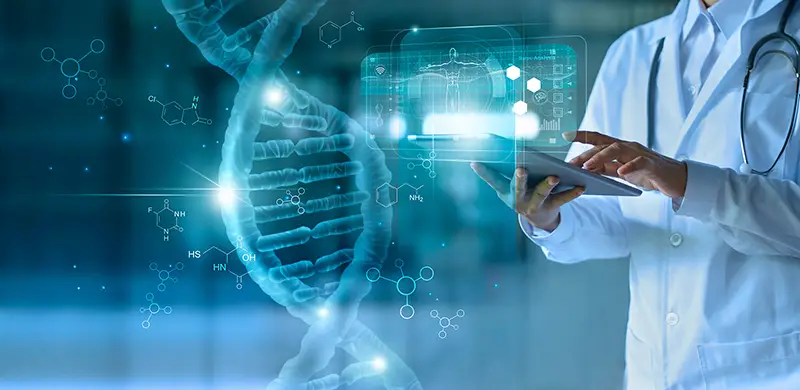Click here to get this post in PDF
The Internet of Things (IoT) is changing how we live our lives. It has already had a huge impact on the way we interact with technology, and it is only going to continue to grow in popularity. One industry that is poised to benefit from IoT is healthcare. In this blog post, we will discuss three ways that IoT is about to change healthcare as we know it!
More Efficiency and Personalization
The Internet of Things (IoT) is set to revolutionize healthcare as we know it. By connecting devices and systems, IoT can increase efficiency while also providing a more personalized experience for patients.
For example, wearable sensors can monitor patients’ vital signs in real-time, while smart pill bottles can remind patients to take their medication and track whether or not they have taken it. In addition, IoT devices can improve accuracy and efficiency in a variety of tasks, from managing medical records to scheduling appointments.
The result is a healthcare system that is more personalized, efficient, and effective.
In addition, the IoT can also help improve patient outcomes by providing real-time data that can be used to make informed decisions. For example, if a patient’s blood pressure is consistently high, their doctor can be alerted, and they can receive treatment sooner.
In addition, the IoT can also be used to monitor medication adherence. By ensuring that patients are taking their medication as prescribed, the IoT can help to improve patient outcomes and reduce the overall cost of healthcare.
The IoT is also set to change how we interact with our health data. Patients have had to rely on their doctor’s office or hospital to access their medical records in the past. However, with the IoT, patients will be able to access their health data anytime, anywhere.
This will empower patients to take a more active role in their healthcare and make informed decisions about their health.
Improved Access to Healthcare
Healthcare is one of the most important aspects of our lives, yet it is often one of the most difficult to access. In many parts of the world, healthcare facilities are limited, and even in developed countries, patients often face long wait times for appointments.
However, the IoT is about to change all that. By connecting patients and doctors, the IoT will improve access to healthcare and make it easier for people to get the care they need. For example, patients will be able to book appointments online and track their health using wearable devices. In addition, the IoT will allow healthcare providers to share data and resources, making it easier for them to provide quality care.
The IoT can also improve access to healthcare, especially in rural and underserved areas. By connecting patients with doctors and specialists via telemedicine, the IoT can help to close the healthcare access gap. The result will be a more efficient and effective healthcare system that can better meet the needs of all patients.
In addition, the IoT can also be used to track health data and trends in real-time, which can help improve disease surveillance and outbreak response. By identifying health threats early, the IoT can help to save lives and protect people from harm.
The IoT is also set to change the way we deliver healthcare. For example, hospitals can use IoT-enabled robots to transport medications and supplies around the facility.
In addition, IoT-enabled devices can monitor patients remotely, which can free up nurses and doctors to provide care in other areas of the hospital. The result is a healthcare system that is more efficient and effective and that can provide better care to more people.
A More Connected Healthcare System
The healthcare industry is gradually becoming more digitized as various applications of the internet of things (IoT) begin to take root. One of the most important ways that IoT is starting to change healthcare is by creating a more connected system.
By connecting devices, patient data can be more easily collected and shared. This data can then improve patient care by identifying trends and improving preventive care measures.
In addition, a more connected healthcare system can help reduce costs by improving coordination between different care providers. Ultimately, IoT is about to change healthcare in several ways, but perhaps the most significant change will be creating a more connected system that can improve patient care and reduce costs.
The Future of Healthcare With IoT
It is clear that IoT is about to change healthcare as we know it. The IoT is set to impact the healthcare industry from improving patient care to reducing costs. However, there are still many challenges that need to be addressed before the full potential of IoT can be realized in healthcare.
For example, data security and privacy are major concerns that need to be addressed. In addition, the healthcare industry will need to invest in infrastructure and training to ensure that IoT can be properly implemented.
Despite these challenges, the future of healthcare looks bright with IoT. If these challenges can be addressed, the IoT has the potential to transform healthcare and improve the lives of people around the world.
If you work in the healthcare industry, it is important to stay up-to-date on the latest IoT developments and start thinking about using IoT to improve patient care. NetSuite Partners can help you get started. Contact us today to learn more.
You may also like: Digital Marketing in Healthcare: Best Practices
Image source: Shutterstock.com

